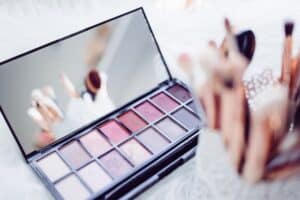
Throughout our lives, we are influenced by the way others view our bodies. This can lead to socially acceptable or unrealistic standards of beauty. This can lead to the so-called “ugly penalty” and body dissatisfaction. In order to understand how beauty standards impact our physical health, we must understand what they are and why they are harmful.
Socially acceptable beauty standards
Beauty standards are important to society, but they also affect physical health. For example, women are more likely to have surgeries if they believe they will improve their appearance. The media plays a big part in this. Women watch Hollywood movies and are influenced by the actresses they see. However, the lack of diversity in Hollywood has a negative impact on body image. It makes women feel that they do not fit the standard of beauty.
Today’s society is plagued with unrealistic beauty standards, which can have a negative impact on a woman’s self-esteem and physical health. Many young women and girls are affected by this constant exposure to images of others. These images are often enhanced using heavy photoshop or filters that can alter a woman’s facial structure or facial features. This constant exposure to a woman’s unrealistic beauty standards can have a negative impact on a women’s self-esteem and cause her to question her own physical beauty.
Unrealistic beauty standards
Beauty standards are unhealthy, unrealistic, and often harmful to our physical health. We are conditioned to believe that we must be thin, fit, and beautiful. The ubiquity of images in the media reinforces this unhealthy, unrealistic standard. It also causes an increased level of body dissatisfaction.
Unrealistic beauty standards are also a source of depression. Studies have found that 78% of teenage girls experience depression or anxiety, in part because of unrealistic standards of beauty. This phenomenon is exacerbated by social networking sites like Instagram, where “Instagram models” are constantly tanned and skinny with perfect skin and facial features.
Beauty standards have always been important to women, but they’ve changed over time. In the 1930s, the definition of “beauty” was an hourglass figure. Later, the obsession with a curvy body and long hair evolved into a preference for pale skin and long hair. Today, the most popular beauty standards are flat-toned stomachs, bigger hips, full lips, toned legs, and colored hair.
Ugly penalty
Whether or not ugliness affects physical health is an open question. There are many different definitions of ugliness, and the research on the subject tends to focus on the components of ugliness, rather than the definition of ugliness itself. Regardless of the definition, the term carries both positive and negative connotations.
The term ‘ugly’ has a long history in popular culture and is often used to describe a woman who does not look attractive. The term originally meant “wise old woman,” but was often shortened to “ugly old woman.” It is a stereotype that is reinforced by the media and the make-up industry, and may be a result of adopting someone else’s ideas about beauty. People who are not attractive are likely to be classified as ugly, and those who do not fit that stereotype may struggle to convince others of their physical beauty.
While fads aren’t a permanent solution, some individuals are trying to challenge beauty standards. For example, some celebrities are no longer posting perfect images of themselves, and have called out corporations for editing them. Meanwhile, other groups are making art to help people destigmatize their scars and other flaws. These efforts are part of the body positivity movement.
Ugly beauty standards can be harmful to a person’s mental and physical health. People may have an unhealthy association with a thin body, and may end up making poor food choices because they are self-conscious of their appearance.
Impact of disclaimer labels on body image
A new study has examined the impact of disclaimer labels on body image and overall physical health. The study included young female and male participants who were shown advertisements with and without disclaimer labels. Participants were shown a print advertisement of a male and a female model. After viewing both images, the participants completed a Body Dissatisfaction Scale (BDS) or Physical Appearance Comparison Scale (PACS) questionnaire.
The goal of these disclaimer labels is to protect consumers from distorted images that can influence their body image. This is because disclaimers alert viewers that the image is not “real” and therefore is manipulated. However, some researchers argue that these labels do not really work, and in some cases may actually make the situation worse.
One study has found that the introduction of disclaimer labels in advertising did not prevent body dissatisfaction in women. Instead, it reinforced narrow beauty ideals. However, disclaimer labels are not an effective solution to the problem of body dissatisfaction, and legislators should focus on other techniques to help women and girls overcome their dissatisfaction with their bodies.
The impact of disclaimer labels on body image and health is mixed, according to the findings of this systematic review of 15 experimental studies. While disclaimers are generally not effective at reducing body dissatisfaction, they do increase body dissatisfaction.
Finishing Thoughts
It is evident that beauty standards have a significant impact on physical health. Individuals who adhere to these standards are at a higher risk for developing eating disorders, body dysmorphic disorder, and exercise addiction. They are also more likely to suffer from anxiety, depression, and low self-esteem. It is important to be aware of these risks and to take steps to protect your mental and physical health.
